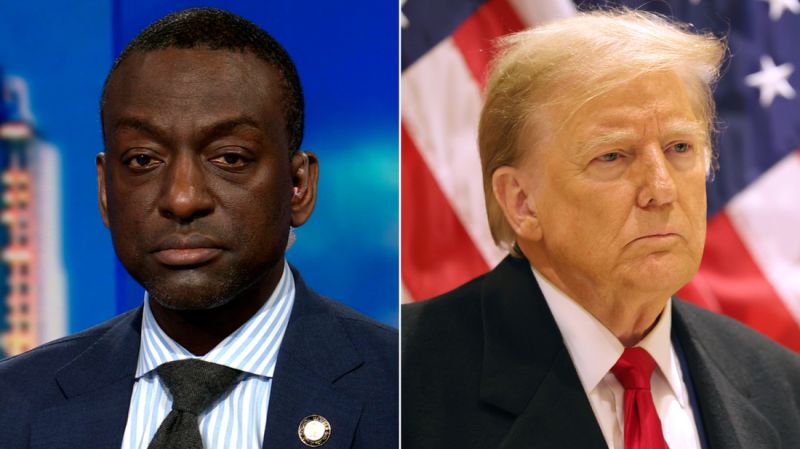Yusef Salaam, one of the Central Park Five members who were wrongfully accused of raping a jogger in 1989, has spoken out about the lasting impact that former President Donald Trump’s words had on him. Salaam spent seven years in prison before his conviction was vacated in 2002. In a recent interview with CNN’s Kaitlan Collins, Salaam discussed how Trump’s inflammatory remarks during the case have continued to haunt him. Salaam recalls feeling like a target when Trump took out full-page ads in New York City newspapers calling for the death penalty to be reinstated during the height of the Central Park Five case. He describes how Trump’s words created a sense of fear and anxiety for him during his childhood.
The wrongful conviction of the Central Park Five is a notorious case in American history that highlights the dangers of racial profiling and the flaws in the justice system. Salaam was just 15 years old when he was arrested and falsely accused of raping a jogger in Central Park. Despite the lack of physical evidence linking him to the crime, Salaam and four other teenagers were convicted in a racially charged trial. Trump’s vocal support for the death penalty in this case only added to the already fraught racial tensions surrounding the trial. Salaam’s exoneration in 2002 was a bittersweet victory, as the damage done by the case and Trump’s involvement continued to affect him.
In the interview with CNN, Salaam discusses how Trump’s rhetoric during the Central Park Five case contributed to a culture of fear and suspicion towards young black men. He describes feeling like a target and a suspect simply because of the color of his skin. Trump’s inflammatory language further perpetuated harmful stereotypes and racial biases, reinforcing a system that disproportionately targets and criminalizes people of color. Salaam emphasizes the need to challenge and dismantle these harmful narratives that continue to divide communities and perpetuate injustice.
Salaam’s experience sheds light on the long-lasting impact of false accusations and wrongful convictions on individuals and communities. Despite being exonerated, Salaam continues to deal with the trauma and stigma associated with the Central Park Five case. Trump’s involvement in the case and his refusal to apologize or acknowledge his role in perpetuating injustice only adds to Salaam’s pain. Salaam’s story serves as a powerful reminder of the importance of holding those in power accountable for their words and actions, especially when they contribute to the harm and suffering of others.
As Salaam reflects on his experience with the Central Park Five case and the role that Trump played in perpetuating injustice, he emphasizes the need for compassion, empathy, and understanding in our society. He calls for a shift in the way we approach issues of race, justice, and accountability, urging people to listen to the voices of those who have been marginalized and oppressed. Salaam’s story is a testament to the resilience and strength of those who have faced injustice and discrimination, and serves as a powerful reminder of the importance of fighting for justice and equality for all.
In conclusion, Yusef Salaam’s interview with CNN provides a powerful and poignant insight into the lasting impact of wrongful convictions and racial injustice. Salaam’s experience with the Central Park Five case and Trump’s involvement illustrates the ways in which individuals and communities are affected by systemic racism and prejudice. Salaam’s call for accountability, empathy, and justice resonates with the need for a more equitable and just society. His story serves as a reminder of the resilience and strength of those who have faced injustice, and the importance of listening to and amplifying their voices in the fight for equality and justice.


